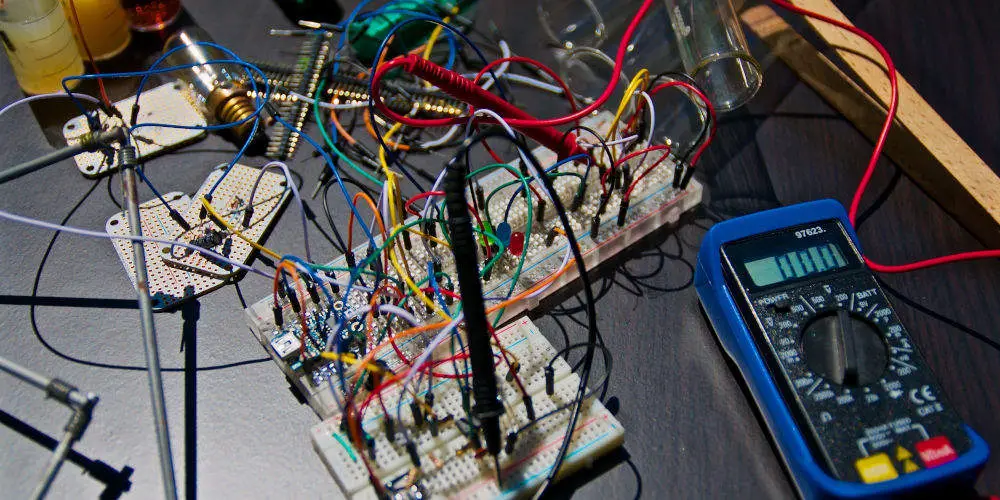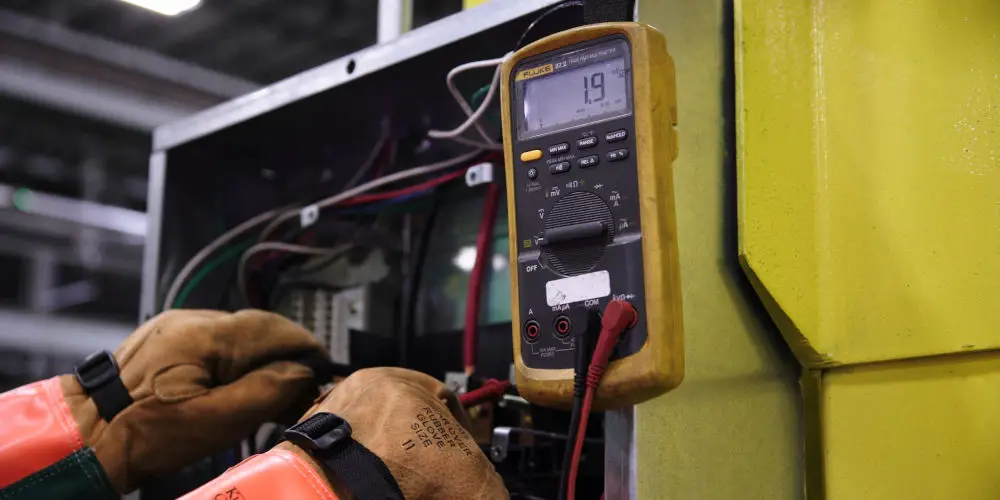Can you sue a smart home installer?

After some research, you find what you think is a suitable smart home company that will design, install, and configure your home automation system. But a few weeks later disaster strikes, leaving you to ask can you sue a smart home installer?
It is possible to sue a smart home installer if they fail to perform their services in a competent manner or if they cause damage to your property. However, it’s best to talk to the company and see if you can come to an agreement before talking with a solicitor.
Before speaking with your smart home installer, it’s worth:
- Gathering any paperwork and receipts
- Taking photos to use as evidence of the problem
- Making notes about what’s happened, including dates and times.
Most tradespeople aim to do the best they can, and so will take steps to correct any mistakes. It’s best to try and remove the emotions and focus on the facts. This might be tricky, but it’s worth staying calm and reasonable.
If you can’t agree on a course of corrective action and feel the only remedy is court action, you’ll need to consult with a solicitor. They’ll advise you on the specific laws and regulations that apply to your situation and help you determine the best course of action to take.
Let’s look in more depth at can you sue a smart home installer.
Did you ask to see the smart home installer’s insurance?
It’s worth starting by talking about insurance. Any legitimate company will have the appropriate insurance coverage.
According to insurance broker Clarke Williams Ltd, installers should have Public and Products Liability, Contract Works Insurance, and Construction Professional Indemnity Insurance. These provide the basic insurance that covers every project the company undertakes.
They also recommend traders hold Employers’ Liability Insurance to cover employees, should the business be more than one person.
Should all of these policies be in place, you can hire the company knowing if a problem arises they have suitable coverage. No business wants to claim on their insurance or be sued, so will do what they can to resolve issues.
If a firm doesn’t have these insurance policies, your project could be at risk, and resolving any issues could be trickier. It’s much easier for these contractors to down tools and move on to the next victim than resolve issues.
With that said, you might be at breaking point with multiple deadlines missed. You can’t go back to the start and ask to see their insurance policies.
So what can you do? Thankfully, Citizens Advice has a lot of actionable advice that we’ve adapted for when dealing with smart home installers.

They haven’t done a good job
If your installer hasn’t done the work with ‘reasonable care and skill’, they’ve broken the law (The Consumer Rights Act 2015). And so, you’re legally entitled to either:
- ask them to fix the problem
- get a refund and stop them from doing any more work.
In either situation, ask for a discount on the final bill to compensate you for any inconvenience caused. Some companies will make this goodwill gesture. And even if they don’t, there’s no harm in asking.
If you’ve asked them to fix the problem, you’ll next need to agree on a reasonable time frame. Sadly, the law doesn’t say what counts as reasonable.
Similarly, asking for a partial or full refund, it’s up to you to agree on a figure. By law, they should pay you any monies due within 14 days.
They haven’t done what was agreed
When you gave the go-ahead to the smart home installer, you technically made a contract with each other, even if it wasn’t written down. If they’ve failed to do what was agreed, they’ve ‘breached’ (broken) the contract and you can ask them to put things right.
If you can, check exactly what was agreed. Look through any paperwork they’ve given you, including emails, SMS messages, and WhatsApp chats.
The Consumer Rights Act 2015 sets out your rights to have the work redone and exactly as you initially agreed. The company should cover all the costs, including any extra materials to make good on their end of the contract.
You’ll need to agree on a reasonable time frame that allows the firm to carry out the required work. Sadly, the law doesn’t say what counts as reasonable.
If you’re unhappy and would prefer to use another firm to correct the issues, you can ask for a partial or full refund. You’ll have to you to agree on a figure. By law, they should pay you any monies due within 14 days.

They haven’t done the work on time
Unless you made it clear that it was important that the work had to be finished by a certain date, you should give them a second chance to finish the work.
Make it clear that this time, the work has to be finished by a certain date. It’s a good idea to put it in writing.
If you don’t want them to carry on after missing a deadline, put it in writing, so you have a record. Next, ask for the final bill. If you feel they are asking for too much money for the work, suggest a figure you feel is more reasonable.
You might have paid a deposit that covers this figure. If you feel the deposit covers more than the work they’ve done, it’s worth asking for a refund.
You’ve been charged more than you expected
You think you’ve agreed on a price with your installer. However, their final bill is more than this amount. Your rights depend on whether you’re given a quote or an estimate. Start by checking your paperwork if you’re unsure.
Quotes vs estimates
A quote (sometimes called a ‘quotation’ or ‘fixed estimate’) is a promise to do work at an agreed price. An estimate is the trader’s best guess of how much the work will cost.
With a quote
Your installer can’t charge more than their quote, unless there’s a good reason, such as:
- They let you know they’d need to do extra work, and you agreed to pay more because of it
- It was obvious that the price in the quote was a mistake.
They can’t charge you more if their costs have gone up since they produced the quote. As long as their mistake wasn’t obvious to you when you got the quote, you have a legal right to get the work done for the price in the quote.
Without a good reason for raising the price, tell them that you’ll only pay what was quoted. It’s a good idea to put this in writing, so you have a record. Stand your ground, and don’t let them push you into paying more.
If you have an estimate
If the final bill is greater than what you were expecting, you can dispute it. The final price should be ‘reasonable’. Sadly, the law doesn’t define this. So you’ll need to agree this between you.
You could ask another installer for an estimate for a system with the same specifications and compare the two. If your installer is a member of CEDIA or other trade association, it’s worth contacting them for advice.
What to do
In either situation, it’s best to tell them:
- You’re unhappy with the price
- What you think would be a reasonable figure to pay.
Get this in writing, so you have a record. You’ll probably have to negotiate a final figure with them, but don’t be pushed into paying more.
If you’re unsure of your next step or need advice, contact the consumer helpline (or Consumerline in Northern Ireland) and speak to a trained adviser who can give you advice over the phone or by email.

A device or product wasn’t installed properly
If your smart home dealer badly installs a device, you’re entitled to get it fixed. In some cases, you might be able to get a refund. As electrics might be involved, it could be dangerous, so they should want to fix any issues quickly.
When you gave the go-ahead to the trader, you technically made a contract with each other, even if it wasn’t written down. So, if they haven’t done what was agreed, they’ve breached the contract, and you can ask them to put things right.
Start by checking exactly what was agreed. Look through any paperwork that they’ve given you.
Under The Consumer Rights Act 2015, you’re legally entitled to:
- Ask them to fix the problem
- Get a refund and stop them doing any more work.
The company should fix the problem within a reasonable time, without causing you too much inconvenience. You’ll need to agree on this time frame as the law doesn’t say what counts as reasonable.
If they can’t or won’t fix the problem, you can ask for a partial or full refund. After agreeing an amount, the law states that you should get your refund within 14 days.
Should you report the trader to Trading Standards?
If they’ve done anything dangerous or unsafe, or don’t act within the law, you should report the trader to Trading Standards. Typically, you can’t report the trader to Trading Standards directly.
You’ll need to contact the Citizens Advice consumer helpline and they will contact Trading Standards on your behalf. The adviser will ask you a series of questions, so they can find out things like:
- Who did the work (and if you have their contact details)
- What the work involved
- When you gave the go-ahead for the work
- How much the work cost and how you paid for it
- If you’ve already raised your complaint with the trader.
But can you sue a smart home installer?
You still have options if you can’t agree on a way forward with the installer or dealer. These include using ‘alternative dispute resolution’, which is a way of solving disagreements without going to court.
Of course, you can sue the company. But this should be seen as your last resort. Taking court action is costly and time consuming. Not to mention, emotionally draining. So it’s worth trying to exhaust all the other options first.
So, can you sue a smart home installer? Yes, but you should try to agree with them on either a corrective course of action or a refund first.




